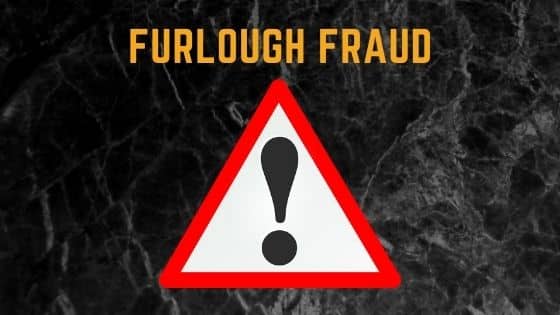Taxpayers who have received CJRS or SEISS grants are urged to doublecheck their entitlement as the 90 day period to inform HMRC of any overclaimed amounts is now law.
Furlough fraud – Do you need to be worried about overclaimed furlough grants?
Well, yes. You could be taxed and possibly fined in the future if HMRC finds that you overclaimed for a Coronavirus Job Retention Scheme grant.
You now have until 20th October (or 90 days from the receipt of your grant, whichever is later) to notify HMRC if you have overclaimed a CJRS or SEISS grant.
The guidance for claiming furlough grants was subject to a number of alterations, and rules around flexible furlough (working part-time) were highly complex, making it easy to make a mistake.
Add to that the fact that a number of businesses deliberately overclaimed, and HMRC is likely to attempt a major clawback of the funds that were given out during coronavirus lockdown.
Leading tax lawyer, Patrick Cannon, advises on the legal impact of overclaiming furlough grants – and why you might need professional advice to protect you from penalties or a fraud investigation.
What is the ‘furlough grant’?
The CJRS (Coronavirus Job Retention Scheme) was initiated in March 2020.
CJRS allowed businesses to furlough employees and apply for a grant of 80% of each employee’s usual wages, capped at £2,500 per month.
Until 31st July, the Scheme also covered the costs of employer NI and pension contributions.
What penalties will businesses face if they overclaim?
The government rushed through the new Finance Act 2020 in response to increasing reports of furlough fraud and abuse of the scheme. Most common were cases of employers claiming furlough grant while continuing to employ their staff full-time, furloughing employees without telling them, and inventing jobs in order to claim the grant.
Furlough fraud is a criminal offence under the Fraud Act and other statutes.
The Finance Act 2020 adds civil penalties where the CJRS payment has not been used to pay employees wages, PAYE, NI or pension contributions.
Under the Finance Act 2020, HMRC has the power to recover payments from anyone who has received a CJRS grant to which they are not entitled, or anyone who has used the grant for something other than employment costs.
HMRC can also charge a penalty for:
- receiving a payment to which you are not entitled
- knowing about the non-entitlement at the time
- failure to inform HMRC of a mistake before the end of the notification period of 90 days or 20th October
HMRC can make the directors of an insolvent company personally liable for the CJRS penalties if their company fails to pay.
HMRC may use this brief amnesty period to head off employer defences based on lack of clarity or inconsistencies in the guidance current at the time the first claims were being made.
Once this period has passed, it may be difficult to run that defence, though that is not to discourage using it, if that is genuinely the position.
It will therefore be important for employers to be proactive and review any potential miscalculations prior to any audit process.
HMRC needs to be satisfied that the legal conditions for claims have been met for all employees, including those on variable pay, new starters and those who have been furloughed for only part of the claim period.
Because of this, it will be important for businesses to be able to evidence and explain their calculations if reviewed by HMRC.
Even if those calculations turn out to be wrong, showing that they were done to the best of the employer’s ability at the time may affect the penalties imposed.
HMRC requires businesses making claims under the Scheme to keep a copy of all relevant records for six years.
How can employers correct previous furlough claims?
The Finance Act 2020 has now introduced a limited 90-day period – an extension to the original 30-day grace period – in which employers can correct any errors and amend their claims.
The onus is now on the taxpayer to prove that they have not made a mistake – or face penalties. For this reason, anyone who thinks they might have made a mistake would be advised to do a careful audit of their claims.
Many accountancy firms are now offering “Furlough Audits” to employers – ensuring that they have calculated their claims correctly, and giving them the opportunity to amend any errors during the legal time limit.
What do employers need to know when making claim corrections?
Since 5th June 2020, it has been possible to correct an overclaim on a previous grant. HMRC has published guidance on how to repay overclaimed grants.
Any corrections can be made at the government website here.
If you have any doubts or think you may require an audit of your claims, or if you’re simply not delighted with the way your accountants have looked after you during this difficult time, In-Accountancy can help you.
If you are concerned about the legal implications of your furlough claims, leading tax barrister Patrick Cannon offers advice and representation in any disputes with HMRC. To make an enquiry, contact Patrick here.
Internet links: CJRS guidance SEISS guidance







